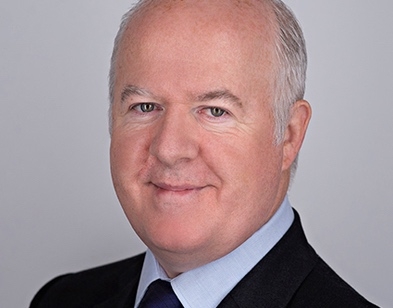As the Bank Holiday nears (at least officially in England, Wales and Northern Ireland), I was intrigued by a story we ran this week revealing that financial services and insurance workers are taking 5% fewer days holiday than they are entitled to.
This unexpected 'sacrifice' over the past few years has occurred at the same time as the amount of annual leave awarded to employees has risen.
Some of the research was carried out on data collected during the pandemic but I wonder if the world of work, at least as it applies to financial services and insurance workers, has changed more than we’ve realised.
The research of thousands of firms points to a significant gap between firms promoting wellness and work-life balance for their employees and what actually happens in real life.
I wonder how many of us have taken a call on our mobiles on a day off? How many have ditched a short holiday because it’s ‘too busy’ at work. How many have been asked by their employers to come into work on a day off because of staff shortages or illness?
As Access PeopleHR, who carried out the study, point out: “The fact that holiday entitlement has grown so much in recent years is promising, however it will become pointless if they’re seen as job perks - but people are too busy to take them. Companies need to take action to identify the reasons for the lack of holiday requests and ensure that they implement ways of working that rectify this.”
Anecdotally, as our Reader Survey now under way is suggesting, the world of work has changed considerably since the pandemic.
The trend to work remotely, at least part of the time, was already under way before the pandemic but there seems little doubt that the massive disruption we saw during the two years of virus chaos have affected the world of work forever and caused many more people, perhaps the majority, to see home working as the norm, not the exception.
Looking at the initial findings of our own survey it looks like remote working for one or several days a week is now a routine part of many companies’ working week. There is no doubt some finance workers spend more time working from home now than an office. For them, it may be easier to work if it’s busy rather than take holiday leave. Work-life balance may be harder to achieve as a result.
For Financial Planners, who have spent many years promoting work life balance and a separation between work and leisure all of this is a bit of a challenge. It’s contrary to the mantra that people are happier when they balance work and lifestyle well. Giving up leave is easier to do than ever when you are working from home.
This creates its own challenges and not necessarily good ones.
All of this could be temporary, of course, but I suspect not. It will require, however, better management, particularly from HR professionals and from financial employers to avoid staff burn out.
It would be a great shame if all the progress in recent years in annual leave and workplace improvements were to slip backwards because people felt obliged to work on their days off or struggled to separate working days and holidays. A look at the situation in workaholic Japan shows what can go wrong.
• Our Annual Financial Planning Profession Survey 2023 is now open. We will be publishing highlights of the results in September and it's great opportunity to tell us how your firm is doing and to comment on key Financial Planning topics. There's also the bonus of a prize draw to win one of five £50 M&S vouchers. Click here to take part: Financial Planning Profession Survey
> Top Tip: Follow Financial Planning Today on Twitter @_FPToday for breaking news and key updates.
Kevin O'Donnell is editor of Financial Planning Today and has worked as a journalist and editor for over four decades.

